When Daniel Loxton and I were doing the research for our book on cryptozoology, Abominable Science, we tracked down monster myths that had been handed down over decades by many different authors. In some cases the back trail for these legends peters out after just a few decades; in other cases, the inspirations for modern cryptid legends may be traced back centuries to the myths of Indigenous Peoples or the artistic expressions of millennia past. No matter the sources, they all ended up in books which indiscriminately compiled every cryptid legend as if they all had robust, plausible histories and back-stories. As we found out, most of the pivotal “sightings” of even the best-attested cryptids were indeterminate or questionable or outright hoaxes, yet they kept on being repeated by the cryptozoology community no matter how doubtful or discredited they were. There was no quality control or careful examination of the reliability of these reports, just stockpiling them all as if they all counted equally. In the end, we recommended that the cryptozoology community needed to get their house in order and weed out the garbage accounts and obvious hoaxes before any scientist would take them seriously.
CONTINUE READING THIS POST…
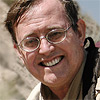
Dr. Donald Prothero taught college geology and paleontology for 35 years, at Caltech, Columbia, and Occidental, Knox, Vassar, Glendale, Mt. San Antonio, and Pierce Colleges. He earned his B.A. in geology and biology (highest honors, Phi Beta Kappa, College Award) from University of California Riverside in 1976, and his M.A. (1978), M.Phil. (1979), and Ph.D. (1982) in geological sciences from Columbia University. He is the author of over 35 books. Read Donald’s full bio or his other posts on this blog.
INSIGHT is not a political blog. However, the travelogue format Dr. Prothero has used here is inherently personal, and certain scientific topics discussed in the post (such the understanding and communication of climate science) are intertwined with political and social trends. I’ve decided to post this opinion/travel piece as written, with the note that the author’s political views are his own.—Editor.
I’ve written again and again on the old SkepticBlog site and in my book Reality Check: How Science Deniers Threaten Our Future about the problems of science deniers in the United States. The U.S. is unique among the developed nations in the world in having a significant percentage of the population that embraces such anti-scientific ideas, despite our huge amount of money spent on education and science literacy. Indeed, we are the only developed nation in the world which has an entire major political party advocating scientific nonsense like this.
Thus, I was fortunate in the first week of November to find myself spending 7 days in Berlin, away from the political maelstrom occurring the U.S. Officially, I was presenting my research at the 74th Annual Meeting of the Society of Vertebrate Paleontology, my main professional meeting (and my 37th SVP meeting in a row). But instead of being isolated from the host country in a hotel, and relying on English-speaking tour guides (as most Americans do), I spent the week as a guest of my buddy from grad school, Dr. David Lazarus, a Curator at the Museum für Naturkunde (natural history museum), and his wife, Dr. Barbara Kohl. David is still a U.S. citizen, raised in Minneapolis but he has lived in many parts of the U.S.; for the past 30 years he has lived in Germany and Switzerland. Thus, he has an interesting perspective on life in the U.S. and in Europe, which I found valuable. I also immersed myself in the German lifestyle, taking public transit to my destinations, exploring the neighborhoods of Berlin, and doing it entirely with my rusty Deutsch from college. When you immerse yourself in another culture, you get a very different perspective on your own—and it’s not just better command of the language, and learning how customs are different. It can be a truly eye-opening experience.
CONTINUE READING THIS POST…

Dr. Donald Prothero taught college geology and paleontology for 35 years, at Caltech, Columbia, and Occidental, Knox, Vassar, Glendale, Mt. San Antonio, and Pierce Colleges. He earned his B.A. in geology and biology (highest honors, Phi Beta Kappa, College Award) from University of California Riverside in 1976, and his M.A. (1978), M.Phil. (1979), and Ph.D. (1982) in geological sciences from Columbia University. He is the author of over 35 books. Read Donald’s full bio or his other posts on this blog.
On the back of a book I wrote a few years ago is a blurb describing me as “the next generation Dr Karl”. Flattering, but I really hate that comparison. Not because I hate Dr Karl—who happens to be fantastic promoter of science—but because if it’s one thing the world doesn’t need, it’s one more wacky science communicator in a bright Hawaiian shirt.
Publishers love a hook for the reader. And since Dr Karl Kruszelnicki is arguably Australia’s most recognisable science writer, it makes sense that his name would be used to promote a science book written by a nobody like me.
I had the pleasure of interviewing Dr Karl for Skepticality in 2008, and have spoken to him once or twice since. His personality is as bright as his wardrobe, and if you have a science question he’ll undoubtedly have a quirky, fascinating story to respond with. (He’s especially generous about answering questions on Twitter.) He certainly presents a lot for a science personality to aspire to, and I have much admiration for the man.
Beyond sharing a love of science story-telling, though, our similarities are few. I wouldn’t be caught dead in a colour brighter than khaki green. I have piercings and a few tattoos, and usually take great pains to avoid describing myself as geeky. I also do my best to correct anybody giving me a PhD (one I never earned), and I don’t call myself a scientist since I haven’t run an assay or poked at a patient in years. Dr Karl I ain’t.
CONTINUE READING THIS POST…
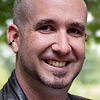
Mike McRae is an Australian science writer and teacher. He has worked for the CSIRO’s education group and developed resources for the Australian government, promoting critical thinking and science education through educational publications. His 2011 book Tribal Science: Brains, Beliefs and Bad Ideas explored humanity’s development to think scientifically—and pseudoscientifically—about the universe. Read Mike’s other posts on this blog.
 “Keep an open mind, but not so open that your brains fall out” is a popular skeptic maxim because it summarizes key elements of skepticism in a pithy, humorous way. But who is the original source for this advice? Some attribute it to Carl Sagan, whose birthday is being celebrated this week as Carl Sagan Day in several locations. It turns out the phrase may in fact have a birthday this week—but that birthday has nothing to do with Sagan!
“Keep an open mind, but not so open that your brains fall out” is a popular skeptic maxim because it summarizes key elements of skepticism in a pithy, humorous way. But who is the original source for this advice? Some attribute it to Carl Sagan, whose birthday is being celebrated this week as Carl Sagan Day in several locations. It turns out the phrase may in fact have a birthday this week—but that birthday has nothing to do with Sagan!
Tidbits from history like this are one of my skeptical interests. I indulge this interest by collecting dates for such things and posting them daily on social media. (You can find where to read them at the Skeptic History page on my blog). I’ve collected these dates over several years from all sorts of sources. As I find them, I add each one to my file for the next time that date rolls around.
Sometimes you can find anniversary dates for surprising things. For instance, did you know that the word “bunkum” (original root of the term “debunk”) is actually derived from a specific incident in the U.S. Congress?
CONTINUE READING THIS POST…

Tim Farley is a computer security analyst in Atlanta, Georgia as well as a writer, podcaster and lecturer. He is known for his website What’s the Harm?, which catalogs the real-world consequences of irrational beliefs. He also writes on technology issues for skeptics at his Skeptical Software Tools blog, where he advocates for skeptic online best practices and explores crowdsourcing as a skeptical technique. Read Tim’s full bio or his other posts on this blog.
Oct. 29, 2014 by
Blake Smith |
Comments Off on Monsters & Science
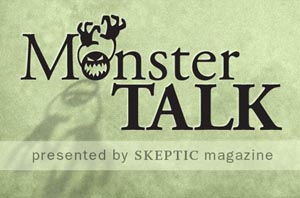 It’s almost Halloween and for some of you that means you’re gorging on scary movies and planning your kid’s trick-or-treating costumes. If you like monsters and scary stories but don’t care for the kind of credulous treatment they always get on documentaries this time of year, you might enjoy a few choice episodes of MonsterTalk: The Science Show About Monsters. While we do enjoy a lot of listeners from a wide spectrum of backgrounds, I get the impression that some people haven’t tried out the show because they have reduced the field of monsterology down to a binary question of “is it real?” With a ready answer to that, they dismiss further inquiry.
It’s almost Halloween and for some of you that means you’re gorging on scary movies and planning your kid’s trick-or-treating costumes. If you like monsters and scary stories but don’t care for the kind of credulous treatment they always get on documentaries this time of year, you might enjoy a few choice episodes of MonsterTalk: The Science Show About Monsters. While we do enjoy a lot of listeners from a wide spectrum of backgrounds, I get the impression that some people haven’t tried out the show because they have reduced the field of monsterology down to a binary question of “is it real?” With a ready answer to that, they dismiss further inquiry.
The utility of monsters as a tool for science communication has more possibilities than that simplistic approach suggests. What we’ve tried to do with MonsterTalk is extend the “is it real” question with additional discussion such as:
- Could this monster ever exist?
- What evidence for it exists outside of legend?
- If it couldn’t exist, what is possible within the constraints of real world science?
And we also try to ask what monsters our guests consider to be their favorites. It’s fun to hear what historians and scientists like to imagine lurking in the shadows.
You don’t have to subscribe to MonsterTalk to listen to an episode. Here are some links to the show-notes for some appropriately themed Halloween topics. On these pages you can click the “play” button and hear the shows without subscribing. We’re also working towards getting transcripts of all our episodes (such as this one), which will let both search engines and the hearing-impaired consume our content.
CONTINUE READING THIS POST…
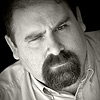
Blake Smith is the producer and host of MonsterTalk, an official podcast of Skeptic magazine. He’s had a lifelong interest in science and the paranormal and enjoys researching the strange and unusual. By day he’s a computer consultant and by night he hunts monsters. He is married and has children. Puns are intentional; don’t bother alerting the management. Read Blake’s other posts on this blog.
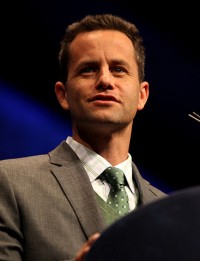
Actor Kirk Cameron. Image by Gage Skidmore, via Wikimedia Commons. Used under Creative Commons Attribution-Share Alike 3.0 Unported license.
Kirk Cameron, former child actor and current fundamentalist Christian and Young Earth Creationist, is promoting a new film, Kirk Cameron’s Saving Christmas. Based on the trailer, it seems that Kirk’s brother-in-law, Christian, played by the film’s director and co-writer Darren Doane, isn’t enjoying the Christmas season: it’s too commercial and has pagan roots. It’s just not Christian enough for Christian. Luckily Kirk is there to show Christian that every element of Christmas is directly related to Jesus and Christianity. The proselytizing and forced merriment make me want to slap a reindeer.
But Christmas isn’t the only holiday Cameron wants to save. He also has big plans for Halloween. In an interview with the Christian Post, Cameron explains that Christians shouldn’t hesitate to celebrate Halloween because it is, like Christmas, an entirely Christian holiday:
The real origins have a lot to do with All Saints Day and All Hallows Eve. If you go back to old church calendars, especially Catholic calendars, they recognize the holiday All Saints Day, with All Hallows Eve the day before, when they would remember the dead. That’s all tied in to Halloween.
CONTINUE READING THIS POST…
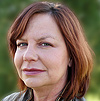
Eve Siebert contributes to the Skepticality podcast and is a panelist on the Virtual Skeptics webcast. She taught college writing and literature for many years. She has a Ph.D. in English literature from Saint Louis University. Her primary area of study is Old and Middle English literature, with secondary concentrations in Old Norse and Shakespeare. Read Eve’s full bio or her other posts on this blog.
The news just came out that astrologer Joan Quigley died on Tuesday, Oct. 21, at age 87. Unlike most astrologers who just mess up the lives of a few ordinary people with their phony mumbo-jumbo, Quigley had the ear of Nancy Reagan during most of the years of the Reagan Administration. For seven years, Quigley had extraordinary power over the events of the Reagan White House. Although Nancy Reagan minimizes her influence, Quigley herself claimed in her 1990 book, What Does Joan Say?: My Seven Years As White House Astrologer to Nancy and Ronald Reagan, that:
I was responsible for timing all press conferences, most speeches, the State of the Union addresses, the takeoffs and landings of Air Force One. I picked the time of Ronald Reagan’s debate with Carter and the two debates with Walter Mondale; all extended trips abroad as well as the shorter trips and one-day excursions.
White House Chief of Staff Donald Regan wrote in his 1988 book For the Record that “the president’s schedule—and therefore his life and the most important business of the American nation—was largely under the control of the first lady’s astrologer.” Once the news leaked out, the Reagans had to distance themselves from Quigley as the nation ridiculed the idea that astrology was a valid way to make executive decisions. A New York Post headline said, “Astrologer Runs The White House.” Another joke suggested that Reagan create a Cabinet post in charge of voodoo.
CONTINUE READING THIS POST…

Dr. Donald Prothero taught college geology and paleontology for 35 years, at Caltech, Columbia, and Occidental, Knox, Vassar, Glendale, Mt. San Antonio, and Pierce Colleges. He earned his B.A. in geology and biology (highest honors, Phi Beta Kappa, College Award) from University of California Riverside in 1976, and his M.A. (1978), M.Phil. (1979), and Ph.D. (1982) in geological sciences from Columbia University. He is the author of over 35 books. Read Donald’s full bio or his other posts on this blog.
The James Randi Educational Foundation (JREF) is continuing to move video content from their “The Amazing Meeting 2013” conference onto YouTube. I was very excited that year to put together a workshop on a topic roughly one thousand times more fascinating than it sounds: “Preserving Skeptical History.” I was joined by INSIGHT’s own Tim Farley, Robert Sheaffer (leading UFO skeptic and Skeptical Inquirer columnist since 1977), and Susan Gerbic (of the Guerrilla Skepticism on Wikipedia project). We also enjoyed, as a special honor, the participation of psychologist Ray Hyman—leading parapsychology-critic and co-founder of the modern skeptical movement.
As organizer, I took the liberty of introducing the workshop with some remarks about the value of historical approaches within skepticism, the text of which I published at Skepticblog under the title “Should Scientific Skeptics Care About History?” I then segued into a practical discussion of historical sleuthing, including such topics as finding rare sources on no budget and the unwelcome news that microfilm is still a thing. This portion may be of interest to teachers, students, and grassroots skeptics.
CONTINUE READING THIS POST…
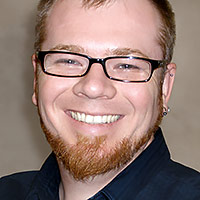
Daniel Loxton is the Editor of INSIGHT at Skeptic.com and of Junior Skeptic, the 10-page kids’ science section bound within Skeptic magazine. Daniel has been an avid follower of the paranormal literature since childhood, and of the skeptical literature since his youth. He is also an award-winning author. Read Daniel’s full bio or his other posts on this blog.
In a previous post I discussed the fascinating case of Paul Frampton who, as the website News Observer put it, “instantly was transformed from superstar particle phenomenologist with three Oxford University degrees to international tabloid fodder” when he fell for a honey trap drug smuggling scam. In it, I talked about irrationality in Mensa, the “high IQ society”, and the fact that rational behavior is not, as most of us assume, a direct product of intelligence.
If rationality is not a product of intelligence, then what is it a product of?
CONTINUE READING THIS POST…
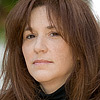
Barbara Drescher taught quantitative and cognitive psychology, primarily at California State University, Northridge for a decade. Barbara was a National Science Foundation Fellow and a Phi Kappa Phi Scholar. Her research has been recognized with several awards and the findings discussed in Psychology Today. More recently, Barbara developed educational materials for the James Randi Educational Foundation. Read Barbara’s full bio or her other posts on this blog.

MonsterTalk is a free audio program about science and monsters, presented by Skeptic magazine. Discover our podcasts today!
A reader recently wrote in to Skeptic to complain about the inclusion of zombies in the content. I’m not 100% sure if this was directed at MonsterTalk, the podcast I produce, or at Skeptic itself because of an upcoming Skeptics Society lecture (scheduled for today at 2 pm at Caltech) about zombies and neuroscience by Bradley Voytek, one of the co-authors of Do Zombies Dream of Undead Sheep? I had both Bradley and his co-author Timothy Verstynen on a recent episode of my show.
The letter read, in part:
I cannot believe the attraction that zombies have for sane persons, especially skeptics. Please leave off all future discussions of such a childish, paranormal, boring subject matter.
I don’t work for Skeptic and wasn’t sure if the complaint was meant for me, for Bradley, or for Skeptic’s management? But I responded because it turns out I do have some strong feelings about the role of monsters and the paranormal in the skeptical world. What follows is a lightly edited version of my response to the author of this email:
CONTINUE READING THIS POST…

Blake Smith is the producer and host of MonsterTalk, an official podcast of Skeptic magazine. He’s had a lifelong interest in science and the paranormal and enjoys researching the strange and unusual. By day he’s a computer consultant and by night he hunts monsters. He is married and has children. Puns are intentional; don’t bother alerting the management. Read Blake’s other posts on this blog.
“The report of my death was an exaggeration.”
— Mark Twain
When I was writing geology textbooks in the late 1990s, many people came up to me and say “Paper books are dead! In ten years, all books will be electronic, and there will be no market for books in any other form.” I kept hearing those prophecies, year after year, especially when Kindle and tablet computers took off less than 10 years ago. Nevertheless, I kept on revising my various geology textbooks and they kept being printed in new paper editions. Eventually, my publishers went to publishing parallel electronic and paper editions. But here we are, almost 20 years since I heard those first dire warnings, and electronic media have not completely replaced books in paper. Vinyl and cassette tapes and now CDs have been replaced by newer audio media, VHS tapes have been replaced by DVDs and now by streaming videos, typewriters have been replaced by many generations of computers and software, film cameras by digital cameras and now by camera phones, slide rules by calculators and now by phones which do that job, and many other technologies have come and gone in my lifetime—but paper books, which have not changed fundamentally in over the 500 years since Gutenberg printed the first Bible, have not.
CONTINUE READING THIS POST…

Dr. Donald Prothero taught college geology and paleontology for 35 years, at Caltech, Columbia, and Occidental, Knox, Vassar, Glendale, Mt. San Antonio, and Pierce Colleges. He earned his B.A. in geology and biology (highest honors, Phi Beta Kappa, College Award) from University of California Riverside in 1976, and his M.A. (1978), M.Phil. (1979), and Ph.D. (1982) in geological sciences from Columbia University. He is the author of over 35 books. Read Donald’s full bio or his other posts on this blog.

The People’s Climate March, Sept. 21, 2014, in New York City was attended by nearly half a million people. (Image by Thomas Good, courtesy Wikimedia Commons. Used under Creative Commons Attribution-Share Alike 3.0 Unported license)
This past several weeks have been an interesting mix of highs and lows on the battle over science and climate change. On Sept. 21, there was the largest march ever in the U.S. (almost half a million people) in New York to urge the UN to act further on climate change. The march was purely symbolic, because the actions in the UN were limited, but it is certainly encouraging to see this kind of popular support in the streets for an issue which has often been perceived as too abstract and long-term for most people to be concerned about.
As a sad irony, almost the same week as the march, the House Committee on Science, Space, and Technology (run by a majority of science deniers, most of whom are both climate deniers and creationists) held hearings on the EPA’s new rules on carbon emissions, where they grilled the President’s science advisor, Dr. John Holdren. As Jon Stewart hilariously lampooned on The Daily Show that week (“a hearing that they apparently held in 1971”), the climate deniers on that “Science” committee made complete fools of themselves, and said things so astoundingly stupid that even a studio audience could see right through them. As Stewart put it on the September 22, 2014 episode, “the hearing’s Sisyphus…John Holdren” was “charged with the impossible task of pushing a million pounds of idiot up a mountain.” (Clip viewable here in Canada.)
CONTINUE READING THIS POST…

Dr. Donald Prothero taught college geology and paleontology for 35 years, at Caltech, Columbia, and Occidental, Knox, Vassar, Glendale, Mt. San Antonio, and Pierce Colleges. He earned his B.A. in geology and biology (highest honors, Phi Beta Kappa, College Award) from University of California Riverside in 1976, and his M.A. (1978), M.Phil. (1979), and Ph.D. (1982) in geological sciences from Columbia University. He is the author of over 35 books. Read Donald’s full bio or his other posts on this blog.
UK-based Sally Morgan, known by her moniker “Psychic Sally,” has become embroiled this week in another dispute with skeptics. Earlier today an undercover video was released showing rather disturbing threats being made against a skeptic from people who apparently work for the psychic performer.
— “Right, so I’m gonna hit you in a minute, I’m gonna knock you out.”
— “I don’t want any trouble.”
The video is below, but first some background is in order. A skeptic named Mark Tilbrook has been handing out leaflets outside Ms. Morgan’s appearances as a form of skeptical activism since earlier this year. These leaflets offer some questions for attendees to consider to make “sure you are not tricked or misled into something that may not be real” along with some hyperlinks to skeptical resources online.
Ms. Morgan’s team took a dim view of this campaigning and have threatened Mr. Tilbrook with legal action, according to his account in The Guardian on Tuesday. He subsequently reached out to the Good Thinking Society, a skeptical UK non-profit run by Simon Singh for help. They are offering him legal assistance, but are also taking Tilbrook’s campaign to the next level, which I will also detail below.
CONTINUE READING THIS POST…

Tim Farley is a computer security analyst in Atlanta, Georgia as well as a writer, podcaster and lecturer. He is known for his website What’s the Harm?, which catalogs the real-world consequences of irrational beliefs. He also writes on technology issues for skeptics at his Skeptical Software Tools blog, where he advocates for skeptic online best practices and explores crowdsourcing as a skeptical technique. Read Tim’s full bio or his other posts on this blog.
“Death does not concern us, because as long as we exist, death is not here,” said that ancient hero of hedonism and Athenian party animal, Epicurus. “And when it does come, we no longer exist.”
For some, this is of great comfort. The idea of eternity—even if it’s spent watching seasons two to infinite of Firefly—is not everybody’s cup of cocoa. For others, it’s impossible to contemplate our minds ever processing a final thought. A recently published study titled “AWAreness during REsuscitation” has reignited the discussion of what happens to our minds as we die.
CONTINUE READING THIS POST…

Mike McRae is an Australian science writer and teacher. He has worked for the CSIRO’s education group and developed resources for the Australian government, promoting critical thinking and science education through educational publications. His 2011 book Tribal Science: Brains, Beliefs and Bad Ideas explored humanity’s development to think scientifically—and pseudoscientifically—about the universe. Read Mike’s other posts on this blog.
People have a habit of trying to tie inventions to the work of some single genius, but that is not how inventions are created, and not how discoveries are made. This is the first in a series of posts that will examine the process of creation, the nature of the inventive process, and why history inevitably tries to give credit to a single person when inventions are never the result of a single person’s work.
Recently I was researching on the medical efficacy of silver as a part of werewolf research, as one does. To my surprise I came across a news clipping that was shockingly discordant with my vague understandings of the history of food preservation.
MODE OF PRESERVING MILK FOR LONG VOYAGES
Sir,— As the season of the year is now arrived when hundreds of mechanics are induced to cross the Atlantic in the hope of bettering their fortune and to those who may carry young families with them, milk may be an important article of diet, perhaps the following extract from an old newspaper of the date of 1822 setting forth a simple and easy method of preserving it may be of importance; more particularly as I perceive from your last monthly list of new patents, that a method of preserving animal milk has just been patented whether the same or a different method remains to be seen: —
“Provide a quantity of pint or quart bottles (new ones are perhaps best); they must be perfectly sweet and clean and very dry before they are made use of. Instead of drawing the milk from the cow into the pail as usual, it is to be milked into the bottles. As soon as any of them are filled sufficiently they should be immediately well corked with the very best cork, in order to keep out the external air and fastened tight with packthread or wire, as the corks in bottles which contain cider generally are. Then on the bottom of an iron or copper boiler spread a little straw on that lay a row of the bottles filled with milk, with some straw between each to prevent them from breaking and so on alternately until the boiler has a sufficient quantity in; then fill it up with cold water Heat the water gradually until it begins to boil and as soon as that is perceivable draw the fire. The bottles must remain undisturbed in the boiler until they are quite cool. Then take them out and afterwards pack them in hampers either with straw or sawdust and stow them in the coolest part of the ship. Milk preserved in this way has been taken to the West Indies and back, and at the end of that time was as sweet as when first drawn from the cow.
I am, Sir, yours,
J. Elliott
March 30 1835
CONTINUE READING THIS POST…

Blake Smith is the producer and host of MonsterTalk, an official podcast of Skeptic magazine. He’s had a lifelong interest in science and the paranormal and enjoys researching the strange and unusual. By day he’s a computer consultant and by night he hunts monsters. He is married and has children. Puns are intentional; don’t bother alerting the management. Read Blake’s other posts on this blog.
I usually cringe when I read a comment by a skeptic arguing that “correlation does not prove causation.” Of course, it’s true that correlation does not prove causation. It’s even true that correlation does not always imply causation. There are many great examples of spurious correlations which demonstrate clearly just how silly it is to extrapolate cause from correlation. And the problem is not trivial. Headlines in popular press articles alone can be very damaging as most people simply accept them as true.
BUT…
I cringe because I am afraid that this oversimplification leads people to think that correlation plays no role in causal inference (inferring that X causes Y). It does. In fact, it plays a very important role that skeptics should be just as aware of as the sound bite “correlation does not imply causation.” And that is that causation cannot be logically inferred in the absence of a correlation.
What’s more, that sound bite does nothing to educate people about how and when we should infer cause. So let’s take a look at both problems.
CONTINUE READING THIS POST…

Barbara Drescher taught quantitative and cognitive psychology, primarily at California State University, Northridge for a decade. Barbara was a National Science Foundation Fellow and a Phi Kappa Phi Scholar. Her research has been recognized with several awards and the findings discussed in Psychology Today. More recently, Barbara developed educational materials for the James Randi Educational Foundation. Read Barbara’s full bio or her other posts on this blog.
A version of this post was originally published at Skepticblog on August 19, 2013, where I intended to update it from time to time. However, the Skeptics Society has since retired Skepticblog, so the original post—which remains available—is no longer suitable for updates.
As I have a couple of newer items to add, and expect to have others to add in the future, I thought it might be useful to publish a lightly updated version here at INSIGHT.
Advocating for the importance of skeptical scholarship is a bit of a theme for me—the scholarship practiced by skeptics, and also scholarship about skepticism. In particular, I’ve devoted quite a bit of attention to the exploration of the history of (“scientific”) skepticism. Historical reflection has become a larger ongoing concern that unifies much of my work.
With that in mind, I thought it might be useful to collect, list, and link to some of my work relating to the history of skepticism. I hope to update this post with new links as time goes by.
You’ll forgive me if my criteria for including or excluding this or that content under the heading of “skeptical history” is a bit loosey-goosey. The history of skepticism and the history of fringe science and paranormal claims are closely interrelated. I write about both (my book with Don Prothero, Abominable Science! belongs to the latter category) but for our purposes here I am specifically interested in the internal history of skeptics and skepticism—the history of critical investigation of paranormal claims. I’ve selected a few examples of my work that seem to speak to that topic:
CONTINUE READING THIS POST…

Daniel Loxton is the Editor of INSIGHT at Skeptic.com and of Junior Skeptic, the 10-page kids’ science section bound within Skeptic magazine. Daniel has been an avid follower of the paranormal literature since childhood, and of the skeptical literature since his youth. He is also an award-winning author. Read Daniel’s full bio or his other posts on this blog.
Thomas Ady was an English doctor and critical exposer of both persecutions for alleged witchcraft and the type of faux-paranormal scams, such as fortunetelling, that sometimes led to witchcraft trials. He was especially critical of the use of torture (including sleep deprivation1) in those trials. But some victims of witch trials confessed without coercion. Ady reflected on those poor souls as follows:
Some indeed have in a melancholly distraction of minde confessed voluntarily, yea and accused themselves to bee Witches, that could do, and had done such strange things, and wonders by the help of the Devil; but mark well their distemper, and you shall finde that they are deeply gone by infirmity of body affecting the minde, whereby they conceit such things as never were, or can be, as is often proved by experience among Physicians, many of those dying in a very short time, (although they be not put to death) except they be cured by the Physician; and truly if such Doctrins had not been taught to such people formerly, their melancholly distempers had not had any such objects to work upon, but who shall at last answer for their confession, but they that have infected the mindes of common people with such devillish doctrins, whereby some are instigated to accuse their poor Neighbours of impossibilities contrary to the Scriptures, and some drawn to confess lyes, and impossibilities contrary to Christian light?
— Thomas Ady. A Candle in the Dark: Shewing The Divine Cause of the Distractions of the whole Nation of England, and of the Christian World. (1655)2
CONTINUE READING THIS POST…

Daniel Loxton is the Editor of INSIGHT at Skeptic.com and of Junior Skeptic, the 10-page kids’ science section bound within Skeptic magazine. Daniel has been an avid follower of the paranormal literature since childhood, and of the skeptical literature since his youth. He is also an award-winning author. Read Daniel’s full bio or his other posts on this blog.

Steven Novella, Daniel Loxton, Barbara Drescher, and Jamy Ian Swiss sitting on the “Skeptical Scope and Mission” panel discussion at The Amazing Meeting 2013 conference (July 11–14, 2013) in Las Vegas.
The James Randi Educational Foundation (JREF) has begun to move video content from their Amazing Meeting 2013 conference onto YouTube.
I was honored that year to join in a panel discussion with magician Jamy Ian Swiss, Skeptics’ Guide to the Universe host Steven Novella, and INSIGHT’s own Barbara Drescher, with Doubtful News creator Sharon Hill serving as moderator. The topic—the question of the “scope” of scientific skepticism—was an old one. But the conversation that emerged on stage may (in my opinion) be one of the most serious, positive, and forward-looking discussions this topic has received in years.
I was tremendously gladdened by that. I’ve often written about the focus, utility, and moral value of scientific skepticism. See for example my 2007 op-ed “Where Do We Go From Here?” (PDF), 2013 historical exploration “Why Is There a Skeptical Movement?” (PDF), or my 2014 speech “A Rare and Beautiful Thing” (read the text or watch the video).
It’s important to me. Important personally.
CONTINUE READING THIS POST…

Daniel Loxton is the Editor of INSIGHT at Skeptic.com and of Junior Skeptic, the 10-page kids’ science section bound within Skeptic magazine. Daniel has been an avid follower of the paranormal literature since childhood, and of the skeptical literature since his youth. He is also an award-winning author. Read Daniel’s full bio or his other posts on this blog.
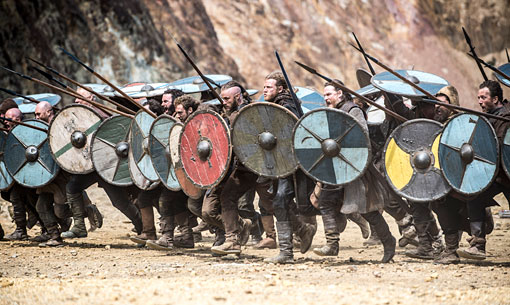
On the History Channel series Vikings, Ragnar’s army charges into battle. Photo by Bernard Walsh/HISTORY. Copyright 2014
Have you ever watched a movie or a television show with someone who nitpicks tiny little things? You know, the guy who bitterly complains that a car parked halfway down the street wasn’t in production until 1956 even though the show is set in 1955? We all know that guy. We all hate that guy. And occasionally, we all are that guy. Today I’m going to be that guy.
 I’ve finally watched the first season of History’s Vikings, written by Michael Hirst. From time to time, friends who know that I studied Old Norse and that I enjoy all things Viking have asked me if I’d seen it, but I was wary because I knew it would annoy me. This is the History Channel after all, the people who gave us Ancient Aliens. Despite my wariness, I did try to watch it a few months ago. It annoyed me. The shifting accents—sometimes thick, sometimes barely existent—annoyed me. The stupidest hairstyles in the history of hair annoyed me. And, above all, the constant smirking of protagonist Ragnar Smirky-Breeches annoyed me. Okay, it’s actually Ragnar Lothbrok (Loðbrók) or “Hairy-Breeches,” but his breeches aren’t hairy, and he does smirk. A lot.
I’ve finally watched the first season of History’s Vikings, written by Michael Hirst. From time to time, friends who know that I studied Old Norse and that I enjoy all things Viking have asked me if I’d seen it, but I was wary because I knew it would annoy me. This is the History Channel after all, the people who gave us Ancient Aliens. Despite my wariness, I did try to watch it a few months ago. It annoyed me. The shifting accents—sometimes thick, sometimes barely existent—annoyed me. The stupidest hairstyles in the history of hair annoyed me. And, above all, the constant smirking of protagonist Ragnar Smirky-Breeches annoyed me. Okay, it’s actually Ragnar Lothbrok (Loðbrók) or “Hairy-Breeches,” but his breeches aren’t hairy, and he does smirk. A lot.
So I gave up for a bit, but recently I tried again, and I have really tried to appreciate it. I do appreciate that Hirst seems to have used some recognizable medieval sources, such as Saxo Grammaticus’s Gesta Danorum (for many of the characters); Ibn Fadlan’s account of the Rus (for the Vikings’ disgusting washing ritual in episode 2 and for Earl Haraldson’s ship funeral. Both scenes will be familiar to anyone who’s seen The 13th Warrior); and Adam of Bremen’s third-hand account of the pagan temple at Uppsala. I also enjoy hearing occasional snippets of Old Norse and Old English.
CONTINUE READING THIS POST…

Eve Siebert contributes to the Skepticality podcast and is a panelist on the Virtual Skeptics webcast. She taught college writing and literature for many years. She has a Ph.D. in English literature from Saint Louis University. Her primary area of study is Old and Middle English literature, with secondary concentrations in Old Norse and Shakespeare. Read Eve’s full bio or her other posts on this blog.
← PREVIOUS
NEXT →

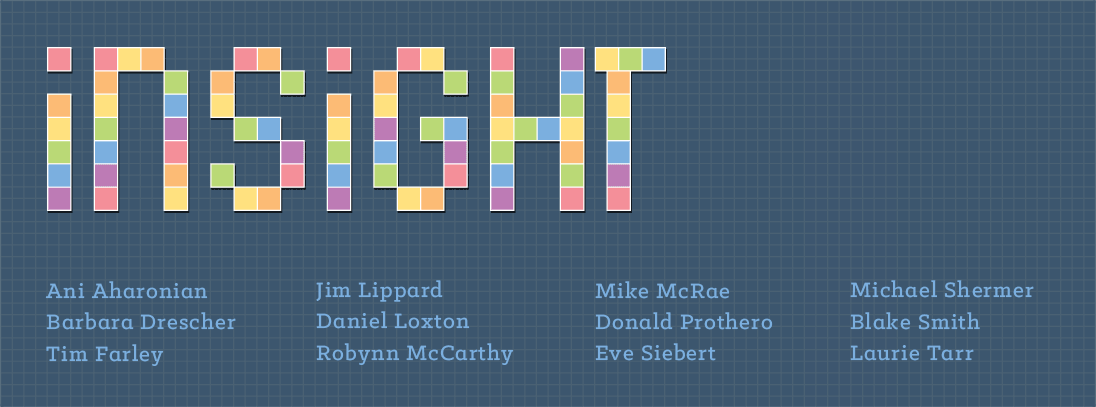
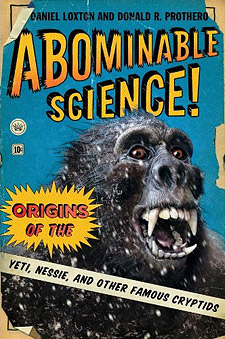

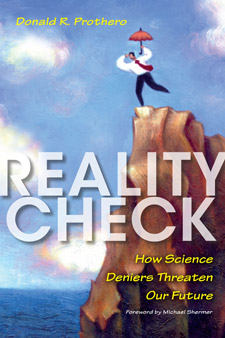
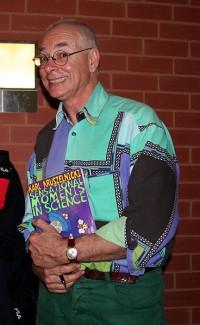

 “Keep an open mind, but not so open that your brains fall out” is a popular skeptic maxim because it summarizes key elements of skepticism in a pithy, humorous way. But who is the original source for this advice? Some attribute it to Carl Sagan, whose birthday is being celebrated this week as
“Keep an open mind, but not so open that your brains fall out” is a popular skeptic maxim because it summarizes key elements of skepticism in a pithy, humorous way. But who is the original source for this advice? Some attribute it to Carl Sagan, whose birthday is being celebrated this week as 




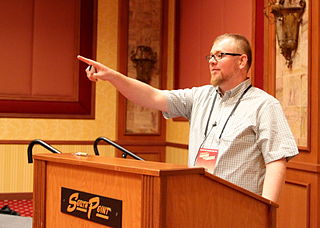







 I’ve finally watched the first season of History’s
I’ve finally watched the first season of History’s 








